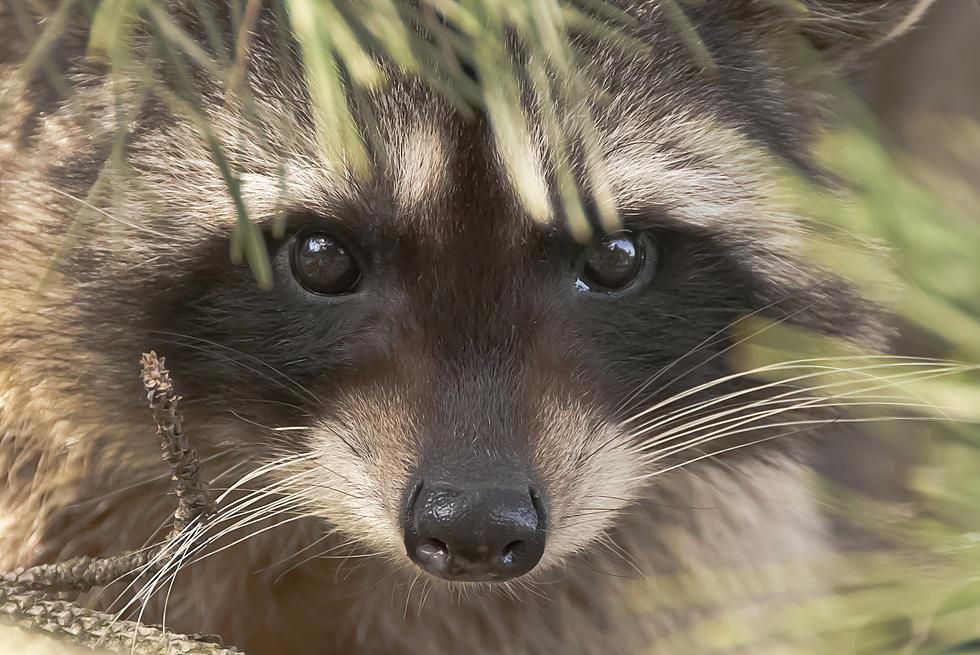
Urgent Rabies Alert Issued after Family Dog Kills Rabid Raccoon in Herkimer County
Central New York experienced yet another tragic incident involving a rabid animal.
This particular event has health officials alerting pet owners to make sure their animals' vaccinations are up to date because a dog was exposed to the fatal disease.
Rabid Raccoon Reported in Herkimer County
Herkimer County Public Health issued a warning to residents to stay away from wild animals after a raccoon tested positive for rabies.
This comes not even a week after a skunk tested positive for rabies in Utica.
The newest incident happened last Tuesday in the Town of Schuyler. The exact location wasn't shared, but the rabid raccoon was apparently found in a residential area.
A family dog came across the raccoon and killed it. Its body was transported to Wadsworth State Labs for testing and it was later confirmed the wild animal was infected.
The family dog's condition wasn't announced.
County officials are now strongly urging residents to learn how to recognize a potentially rabid animal, make sure their pets' vaccinations are up to date, and to teach their children to never play with unknown animals either wild or domestic.
Per Herkimer County officials:
Herkimer County Public Health would like to remind the public to please check your pets’ rabies vaccination records to make sure that they are up to date. If they are not up to date, make an appointment with their vet or Public Health as soon as possible to have them vaccinated against rabies.
If an unvaccinated pet is bitten by a rabid animal, it will need to be euthanized immediately as the disease is 100% fatal. There is also no USDA-licensed treatment or cure for rabies in unvaccinated domestic animals.
Rabies on the rise in New York
Recently, officials urged pet owners to be aware of the growing number of reports of wild animals infected with rabies and ensure their pets are protected.
Read More: Kittens Expose 9 People to Rabies in Central New York
Madison County Department of Health's Aaron Lazzara warned, "We are seeing more rabid animals this year than the last two years combined."
Skunks, foxes, raccoons, coyotes, and bats make up the majority of rabies cases in the United States, but the disease is capable of infecting horses, ferrets, cattle and other warm-blooded animals.
According to the Centers for Disease Control and Prevention, wildlife accounts for over 90 percent of all reported rabies cases.
Rabies is transmitted through direct contact with an infected animal through its saliva or nervous system tissue. People can get infected if bitten from a rabid animal.
The Oneida County Health Department warned:
If you see an animal, wild or stray, with these signs, do not approach it and stay away. If any animal is acting strangely, call your local animal control officer for help. If you are concerned you may have been exposed to a rabid animal or find a bat in your home, call Oneida County Health Department for guidance.
Signs and symptoms of the disease include drooling or foaming from the mouth, abnormal or aggressive behavior, paralysis, seizures, difficulty swallowing, and self-mutilation.
The disease is always fatal, which is why officials stress the importance of vaccinating your pets against rabies. It's also the law.
What's New York's law on rabies vaccines?
New York mandates all pet owners vaccinate their dogs, cats, and ferrets by the time they're 4-months old.
Even if you have an indoor only pet, vaccinating it will protect your animal if it ever slips outside and encounters a sick animal.
Lazzara noted that vaccinating your pets does more than protect them against the virus.
"We never want anyone to have to make a decision to euthanize an unvaccinated family pet that came in contact with a rabid animal," he said.
There are several pet rabies clinics scheduled in Central NY. The next drive will be held Thursday, October 19 at the Town of Trenton Offices. The clinic runs from 5:30 p.m. to 7 at night.
Read More: Rabid Fox Bites Elderly Woman & 2 Kids in Upstate New York
Appointments are required. To secure your spot, contact the Oneida County Health Department at 315- 798-5064 or log onto our web site at ocgov.net/rabies.

10 Exotic Animals You Can Legally Have as Pets In New York
Gallery Credit: Credit - Polly McAdams





